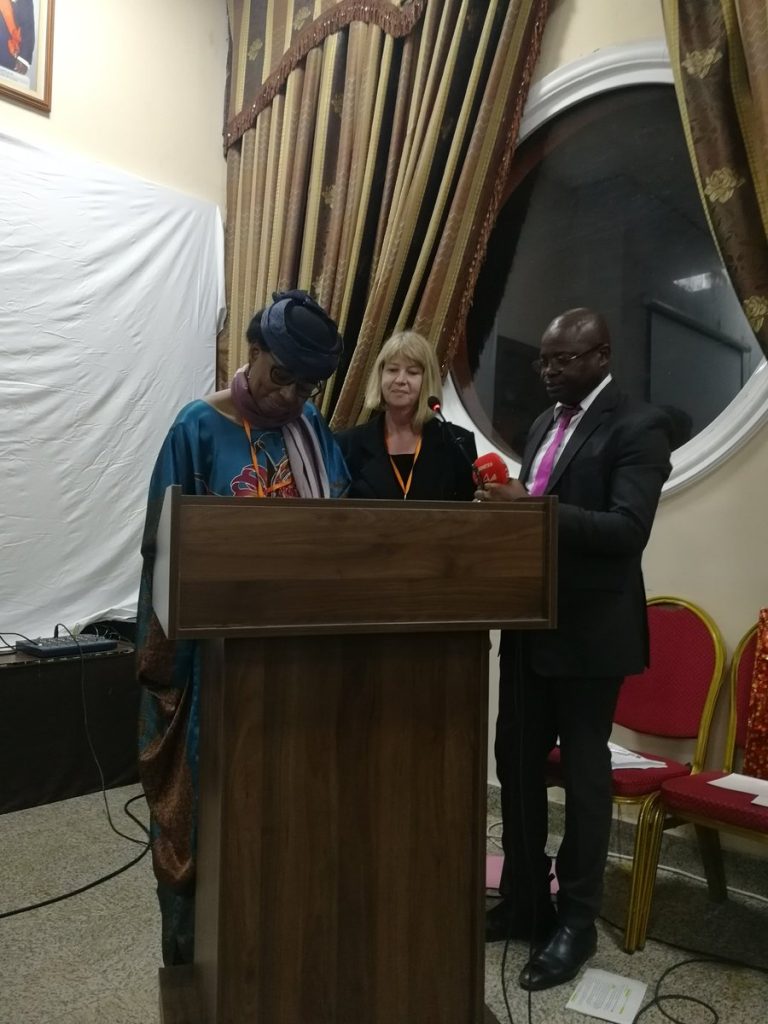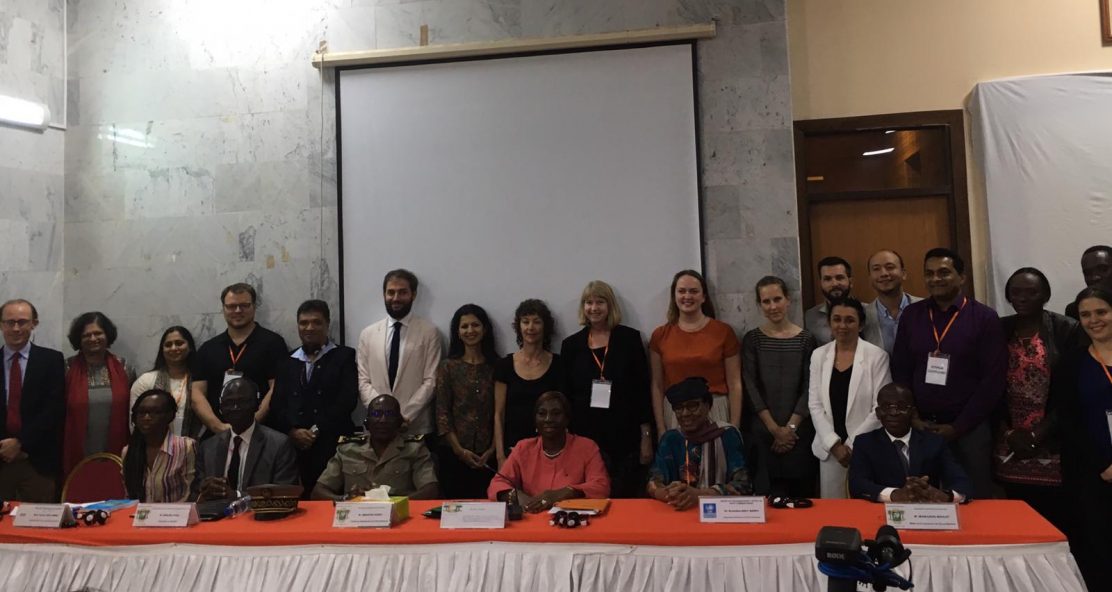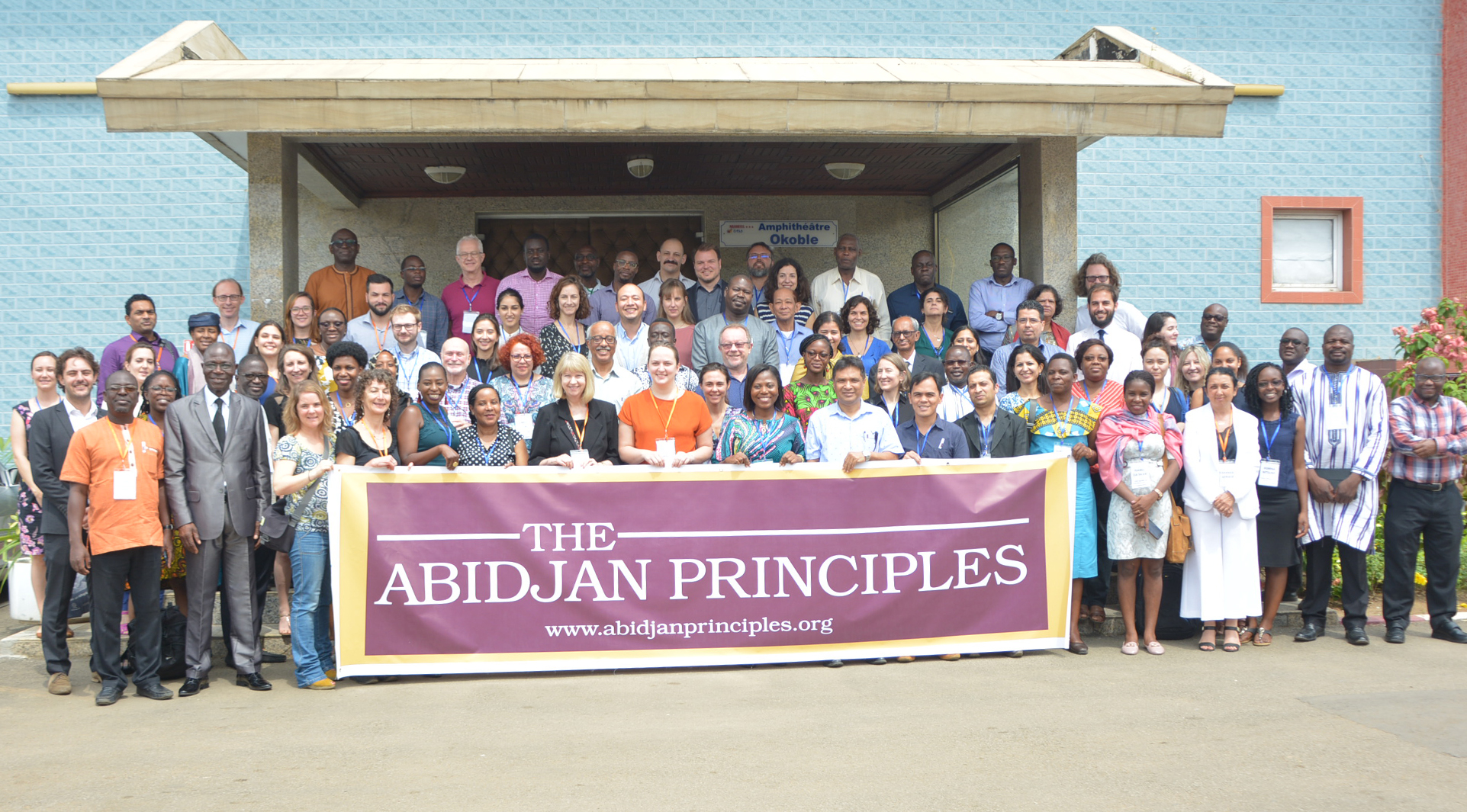New landmark Abidjan Principles on the right to education and private actors adopted by experts
A group of human rights experts from around the world adopted, on 13 February 2019, the Abidjan Principles on the right to education today, following three years of consultations, reflection and drafting. The Abidjan Principles seek to strengthen existing efforts to ensure that everyone’s right to education is protected in the context of growing, and often unregulated private actor involvement in education.
Professor Ann Skelton, who chaired of the Drafting Committee, and holds the UNESCO Chair of Education Law in Africa, said: ‘Until today, those responsible for ensuring the right to education lacked clarity on what international human rights law says about private actor involvement in education, often leading to inadvertent and preventable adverse impacts.’
‘The Abidjan Principles compile and reassert the legal obligations of states in one document. They have been developed to respond to the well-evidenced, detrimental impacts that are often the result of the commercialisation of education.’
Echoing this, Dr Kombou Boly Barry, the UN Special Rapporteur on the right to education, one of the experts who was consulted, said: ‘The Abidjan Principles are legally rigorous and tackle the very real challenges in providing inclusive free, quality public education, making them indispensable to any state that takes the right to education seriously.’
The Abidjan Principles unpack States’ obligation to provide public education, to respect liberties and dignity in education, and to regulate private actors in education.
Samuel Dembele, the chair of ANCEFA, commented, ‘The Abidjan Principles arm us with the necessary tools to tackle the issue locally, while also connecting to the larger, systemic challenges presented by the privatisation of education.’
As well as their utility for States, the Abidjan Principles will be invaluable to those striving to hold States accountable when they fail to ensure that private actors respect the right to education.
The deputy mayor of Grand-Bassam, where the meeting took place, Siaka Traoré, declared: ‘Grand- Bassam is proud to have hosted this validation conference for the guiding principles for the implementation of the right to education, which will allow us to move faster towards the free quality education for all. It was a true pleasure for me to take part in the opening and closing ceremonies.’
The drafting of the Abidjan Principles was led by a drafting committee made up of nine internationally-renowned experts. A further 20 experts were present in Abidjan to review and adopted the text. Additional experts that were not able to be in Abidjan are expected to sign the text soon, which will also be open to endorsements from civil society organisations and other actors.
The final text of the Abidjan Principles will be available after copy-editing around mid-March.
Launch events will be organised throughout 2019. Details will be shared at www.abidjanprinciples.org.
Media Contacts:
For press releases in other languages, images, and videos www.abidjanprinciples.org/media
- Sylvain Aubry (FR/EN), Legal and Policy Adviser, Global Initiative for Economic, Social and Cultural Rights: +254 7 88 28 96 34 / +33 7 81 70 81 96 / sylvain@globalinitiative-escr.org
- Delphine Dorsi (FR/EN/ES), Director, Right to Education Initiative: delphine.dorsi@right- to-education.org
- Salima Namusobya (EN), Executive Director, Initiative for Social and Economic Rights: dir@iser-uganda.org
- Rubeena Parker (EN), Head of Research, Equal Education Law Centre: rubeena@eelawcentre.org.za
- Solomon Sacco (EN), Deputy Director, Law and Policy Programme, Amnesty International: solomon.sacco@amnesty.org
More information: www.abidjanprinciples.org
Download the press release in English or French
Photo Gallery





